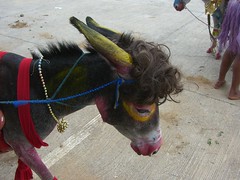When the Vice Magazine article about social work in the Tenderloin came out last week I had a strong desire to write my own rebuttal. My main problem being the hopelessly negative view of a neighborhood with a lot of uphill battles that sits in the middle of a city of extreme wealth. The Tenderloin needs all the help it can get, and I don’t think this article helps. It’s fun to talk and write about all the cool things that other neighborhoods have going for them, as writers on this blog often do, but when the only thing we hear about the communities that aren’t booming is a tired old story like the Vice article it just seems lame.
Before I had the chance to write about it I saw the interview with Brian Brophy on Uptown Almanac, which I thought presented some great counter points and an overall reality check back to Vice, as well as a surprisingly thoughtful comment thread. I also saw the powerful response by Dregs One, which really highlighted the Vice interviewee’s lack of awareness about her own privilege and unhelpful dearth of empathy. I say unhelpful, because I think for people working with a community like the one she works with you need to have empathy not to feel sorry for your clients, but to understand how they’ve come to be in this situation so that you can help them move toward a healthier life. Maybe this person does have that awareness, something gets her out of bed and to this work every day, but it wasn’t present in the article.
Though I don’t read Vice, I understand that the writers are probably going for a tone that is “honest” in that it sounds like two friends talking with each other like they would if nobody was listening. But people are listening. Maybe the social worker in this article needed to vent after day after day of dealing with intense situations. Fine. But now that venting is a widely read article that defines this community in a lot of people’s minds. In a time when San Francisco is changing very fast and some of us are working really hard to make sure that certain communities don’t get shut out and left behind, again, this is not helpful. I know all too well that talking about blood and human waste and edgy stuff gets a lot more attention than stories of hope and triumph, at least in the demographic and mediums that this blog and Vice have in common. I’ve blogged about poop before and I’ll do it again. Even so, I’m going to take up a little internet real estate every once and a while to share other kinds of stories that I see going on in this city that I feel need to be shared. I don’t do enough to bring them to light, but here I am trying.

[picture of Jayraj by Ariel Dovas for BAYCAT]
Contrary to what the social worker says in the Vice article, the Tenderloin is not “one of the two predominately black neighborhoods left in SF”. However, the Bayview Hunters Point population in 2010 was made up of 33.7% African Americans, the largest ethnic group in that neighborhood. As I’ve mentioned a number of times before, I’ve spent almost 9 years working with people from this community at BAYCAT, Bayview Hunters Point Center for Arts & Technology. Recently, one of our former students and a current intern, high school student Jayraj Govender, created a short video for his school that deals with the the choices that a teenager faces. I think it shows a real maturity and artistic curiosity and I’m excited to see what he does next.
For the last thing, in 2012 Jayraj teamed up with three other former BAYCAT students turned young adult interns from Bayview Hunters Point, Iman Rodney, Teak Stephanchild and Tiffany Jones, to create a short documentary bringing the neighborhood’s health issues to light from a young adult’s perspective, called Endangered. The project was funded by Metta Fund and produced with mentorship from Melinda James. Tiffany created all the animation for the piece.
We were checking out Mission Mission’s stats, and noticed that “animal sex” is our most popular tag — by a mile. This was all begat by the cartoon animals making love post about some graffiti we saw on a bus. We thought we were just recognizing some charming art we saw in the nabe. Unbeknownst to us, we had tapped into something much more interesting. So we started talking: “We’ve analyzed the numbers; now how can we best cater to the needs of our audience?” Then we recalled a fascinating report broadcast some time last year by VBS TV about an allegedly time-honored Colombian tradition: fucking donkeys.
Link to Part One (in which the history of the tradition is introduced).
Link to Part Two (in which the voracity of certain allegations are examined).
Link to Part Three (in which a dude bones a donkey).
Link to the report’s official blog entry (with safe-for-work pictures).
